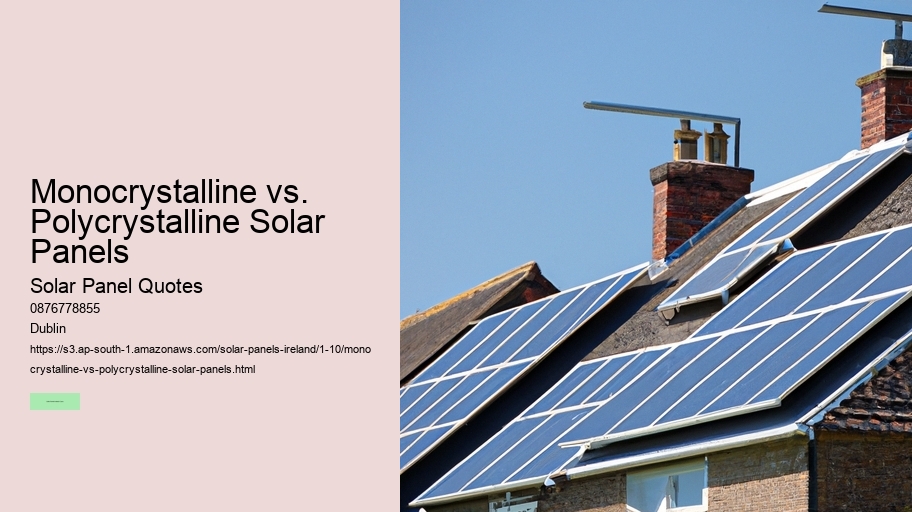

By harnessing sunlight to generate electricity, solar panels significantly reduce the carbon footprint of homes and businesses. Homeowners can monitor their electricity generation and consumption in real time, making informed decisions to optimize their energy use. Adding features such as shading optimizers or higher-capacity inverters can improve system performance but may slightly increase the initial cost.
For optimal results, a site survey will help determine the most suitable system for your property. Solar panels also contribute to efficient energy use beyond electricity generation.
These initiatives align with Ireland's goals of reducing greenhouse gas emissions and encouraging sustainable energy practices. Regular cleaning to remove dirt and debris is often sufficient to maintain optimal performance.
In addition to individual benefits, solar panels support the broader energy transition by feeding surplus electricity into the national grid. looking for the cheapest solar panel ireland cost then checkout solar panel quotes. Homes equipped with rooftop photovoltaic systems are perceived as energy-efficient and environmentally friendly, making them more attractive to potential buyers.
Choosing the right solar system requires careful consideration of individual needs. With advances in solar technology, modern panels offer higher efficiency rates, even in Ireland's relatively mild climate. As energy prices continue to rise and climate concerns grow, solar panels provide a forward-thinking solution to power your home efficiently and sustainably.
This period is shorter than many other investments, and after the payback period, homeowners can enjoy 20 or more years of low-cost electricity, generating significant savings over time. These combinations create comprehensive solutions for reducing energy costs and minimizing environmental impact.
Government incentives significantly reduce the financial barrier to adopting solar energy. Regular maintenance, such as cleaning and performance checks, ensures optimal efficiency throughout the system's lifecycle.
Homeowners can generate their own electricity, reducing dependence on the national grid. The choice of panel type can significantly influence the overall cost and performance of the system.
Advanced systems allow for seamless integration with hybrid vehicles and electric vehicle battery chargers, making them a smart investment for homes transitioning to sustainable energy. Solar panels are a long-term investment with a lifespan of 20 to 25 years or more. This process, supported by feed-in tariffs, not only rewards homeowners financially but also strengthens the country's renewable energy infrastructure.
For instance, monocrystalline silicon panels, known for their higher efficiency, are often preferred despite their higher cost compared to polycrystalline silicon options. tariff By integrating solar thermal energy with your setup, you can further reduce household energy consumption while enhancing sustainability.
Additionally, they support the heating of water for domestic use, further reducing overall energy consumption. Solar Panel Ireland Cost: A Comprehensive GuideWhen talking about solar panel installation in Ireland, understanding the costs and benefits is essential for anyone considering a move to renewable energy.
The combination of reduced electricity bills, environmental benefits, and increased property value makes solar energy an attractive choice for homeowners and businesses alike. For homeowners and businesses in Ireland, solar panels provide an effective way to achieve energy independence, lower costs, and contribute to a more sustainable planet.

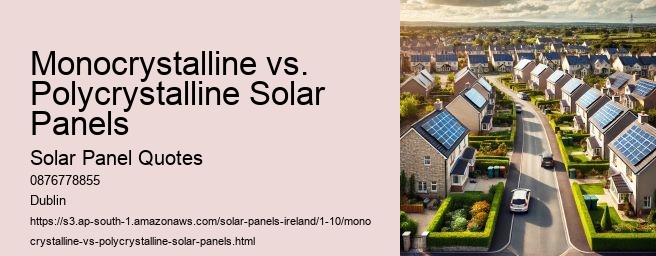
Look for providers with certifications from the SEAI and a proven track record of installations. Financial support is available through the Sustainable Energy Authority of Ireland (SEAI), offering grants of up to €2,400 for solar panel installations. The payback period for solar panels in Ireland is typically between five and seven years.
With the installation of a smart meter, homeowners can track their energy production and consumption, optimizing the system's financial returns. Understanding the various factors that influence costs, available financial supports, and the long-term savings helps homeowners make informed decisions.
Modern rechargeable batteries are scalable, enabling homeowners to start small and expand as needed. It allows homeowners to store excess electricity generated during the day for use during the night or in periods of low sunlight.
For homeowners, investing in solar panels is more than just a financial decision-it's a commitment to sustainability and energy independence. Most systems come with warranties covering 20 to 25 years, providing long-term support and assurance for homeowners.
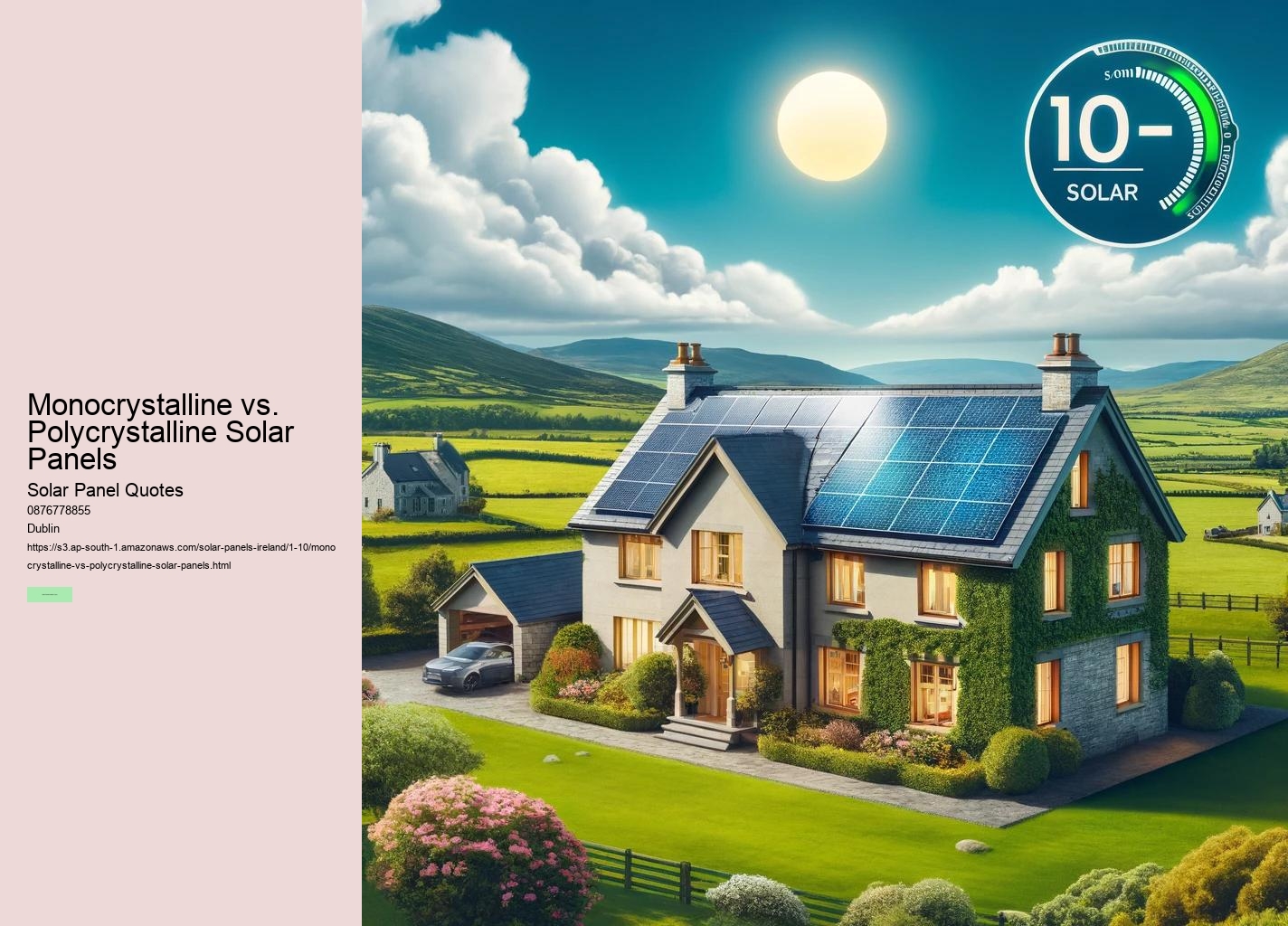
These measures reflect Ireland's commitment to sustainable development and encourage more homeowners to transition to renewable energy. Solar water heating systems, for instance, use thermal solar collectors to heat water, reducing the reliance on electric heating or gas boilers. This process, supported by feed-in tariffs, enhances the overall sustainability of the country's power system.
By investing in solar energy, homeowners contribute to the planet's well-being while positioning their properties as forward-thinking and environmentally responsible. Monocrystalline panels are highly efficient and durable, while polycrystalline panels offer a more budget-friendly option without compromising too much on efficiency.
A standard solar panel system can reduce household electricity bills by up to 70%, depending on energy consumption and sunlight availability. Solar power also plays a crucial role in Ireland's overall energy development strategy.
This aligns with global efforts to combat climate change and promote sustainable living. These systems are particularly useful for homes aiming to minimize reliance on the electrical grid.
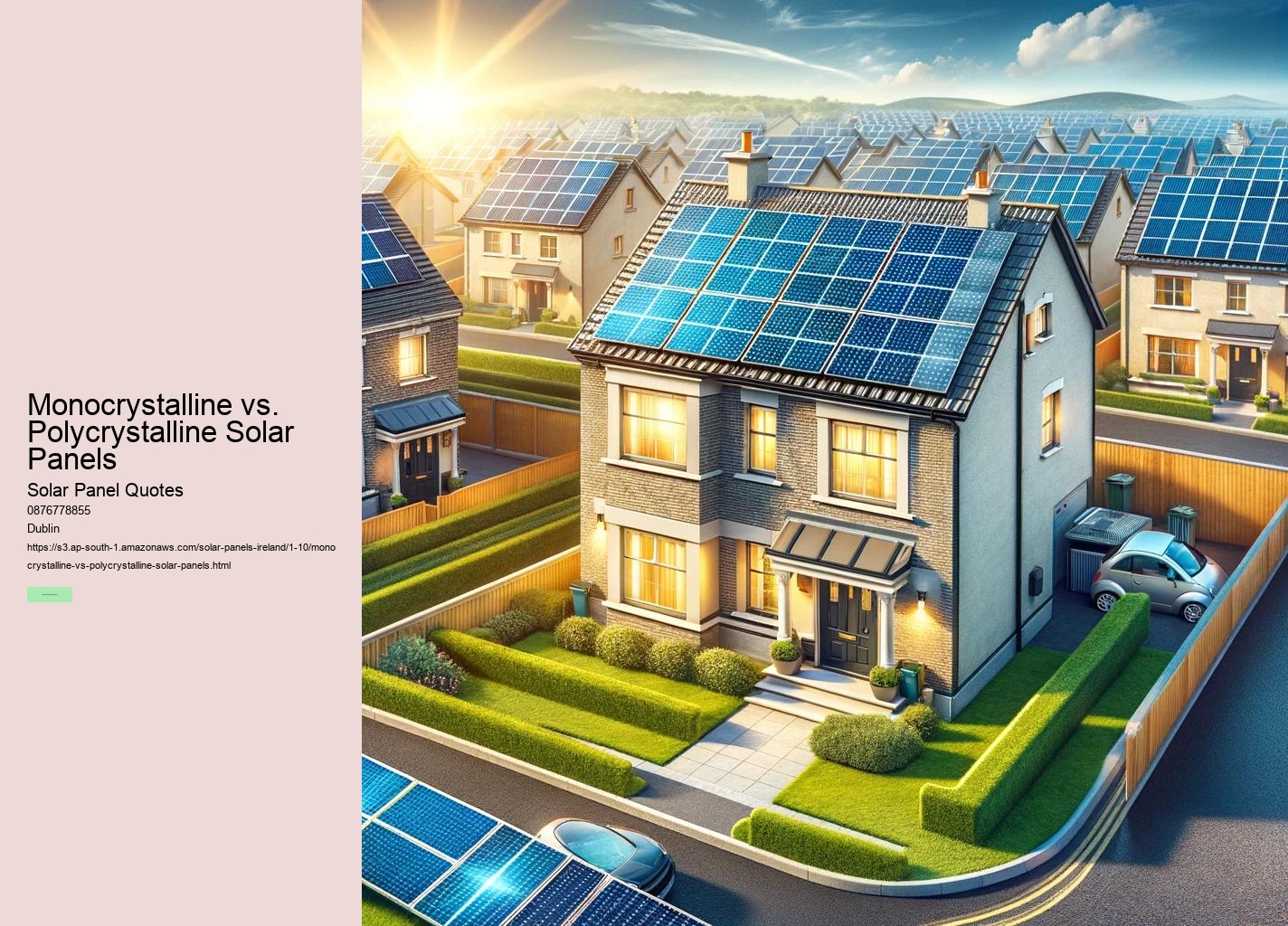
Ireland's feed-in tariff system provides compensation for surplus energy, which is credited via smart meters. Solar thermal collectors can reduce reliance on electric heating or gas boilers, providing an efficient solution for water heating. Solar panels offer additional value by increasing property attractiveness and market value.
While not mandatory, a rechargeable battery or home energy storage system can significantly enhance the functionality of a solar panel installation. This added value aligns with global trends in efficient energy use and sustainable living.
This increased property value complements the energy cost savings and supports long-term sustainability goals. Solar panels also contribute to property value.
Solar panels have become an increasingly popular choice for homeowners and businesses looking to reduce their electricity expenses and contribute to sustainable energy development. Solar power can also be used in conjunction with other energy-efficient technologies, such as electric vehicles, to further reduce household energy consumption and carbon emissions.
Monocrystalline silicon panels, with their high efficiency and sleek appearance, are ideal for smaller rooftops or those looking for maximum output. These systems are now more efficient, durable, and adaptable to various climatic conditions, including Ireland's. Solar thermal energy systems, for example, can provide solar water heating, reducing the need for gas or electric heating.
Moreover, energy storage systems mitigate fluctuations by storing surplus power for later use. These systems often integrate with boilers and smart meters to optimize energy use.
After the payback period, households benefit from up to 20 years of free electricity, significantly reducing the cost of electricity by source over the system's lifespan. By producing their own electricity, households reduce dependence on the national grid and avoid fluctuations in electricity prices.
Thin-film solar cells, though less common, may provide a more cost-effective option for specific installations. Energy storage solutions, such as rechargeable batteries, are a valuable addition to solar panel systems.
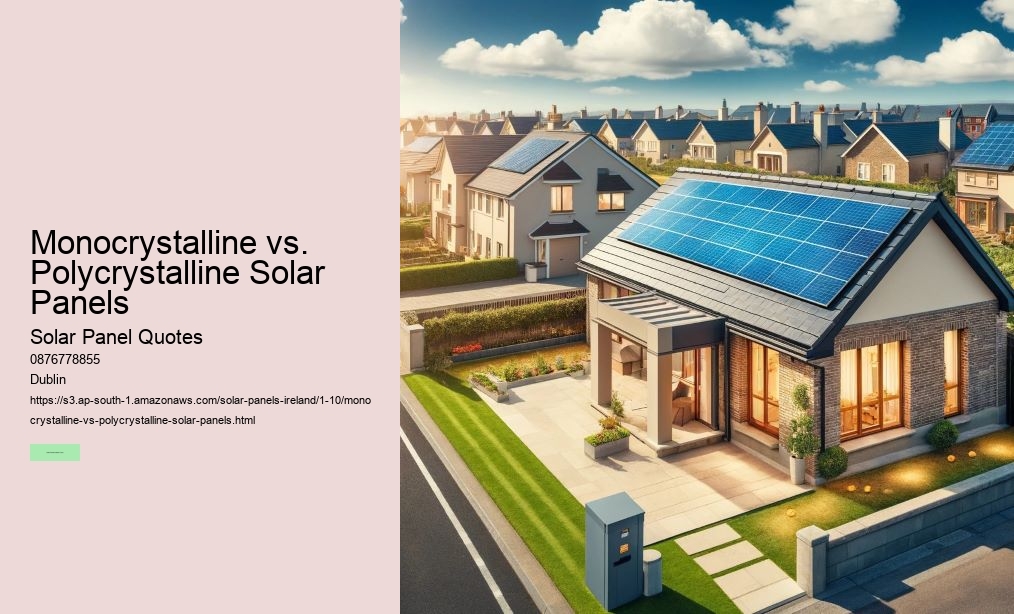
The cost of solar panels in Ireland typically ranges between �6,000 and �18,000. The price can vary based on factors such as system size, panel type, and additional features like battery storage.
Yes, the Irish government offers several incentives, including SEAI grants and a reduction in VAT on solar equipment to promote solar energy adoption.
Solar panels typically pay for themselves within 5 to 7 years in Ireland through savings on electricity bills.
Yes, given the rising cost of electricity and the availability of government incentives, solar panels are a financially sound and sustainable investment in Ireland.
Solar panels typically pay for themselves within 5 to 7 years in Ireland through savings on electricity bills.
Yes, installing solar panels can increase home value by improving energy efficiency and attractiveness to potential buyers who value sustainability.